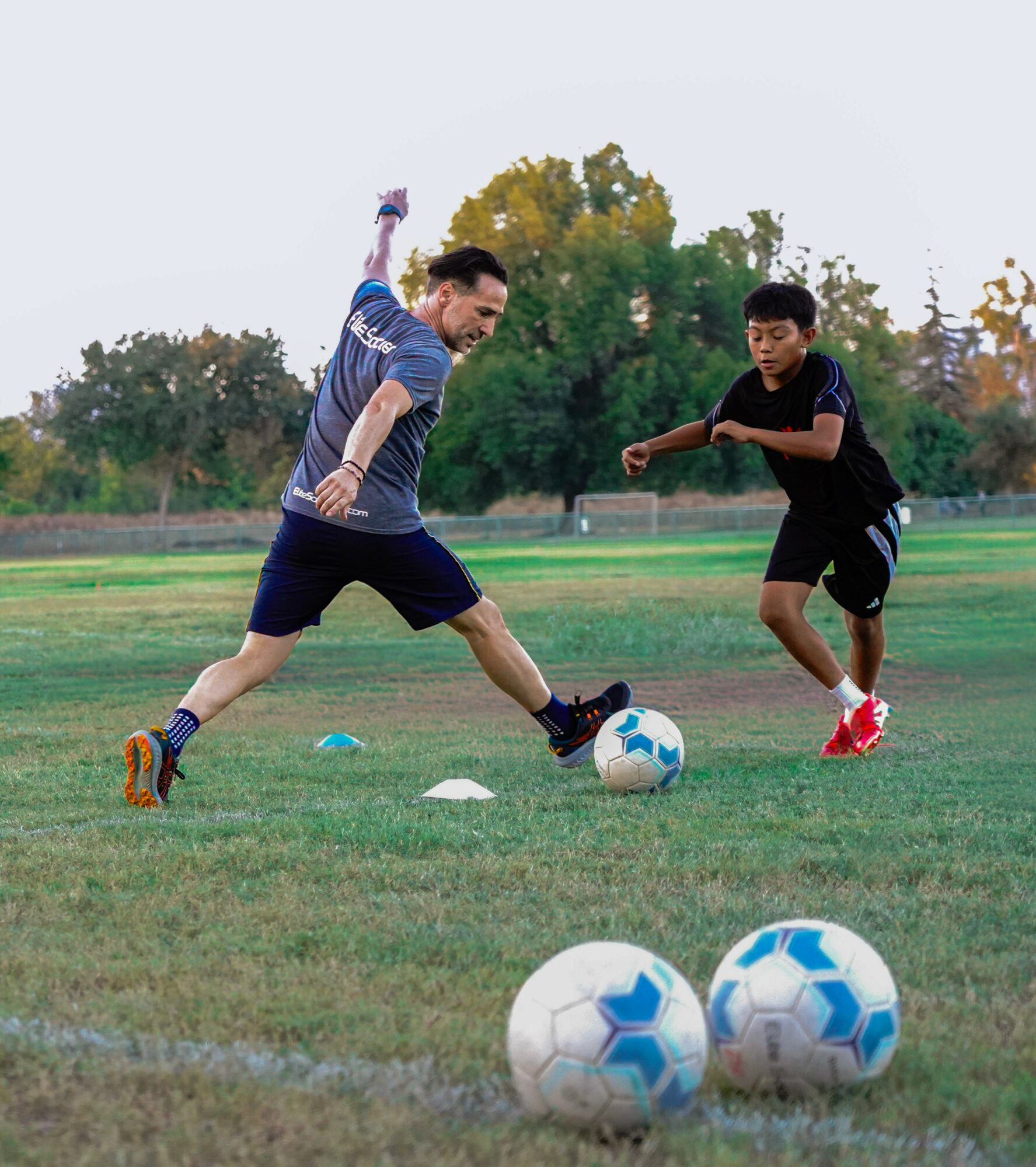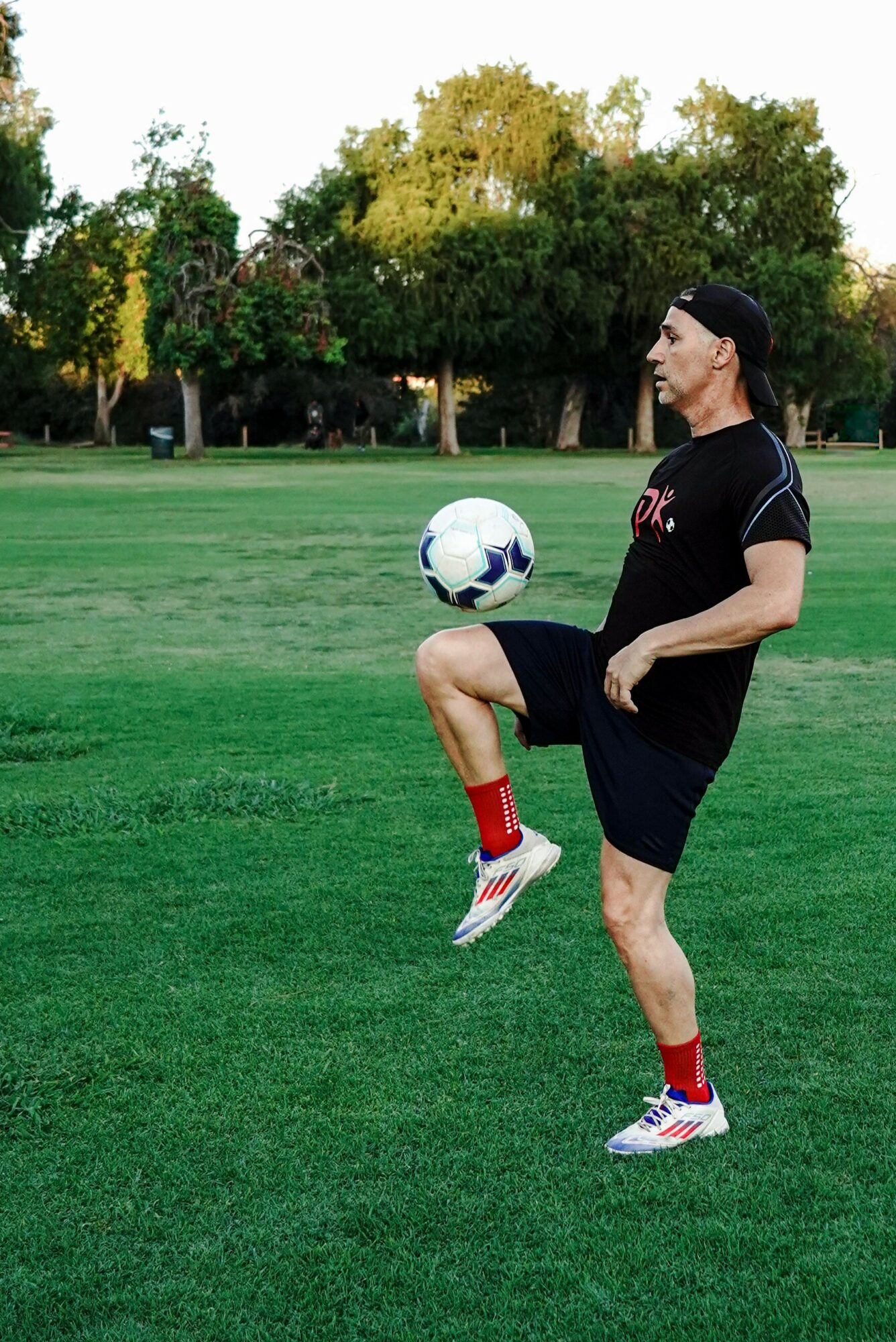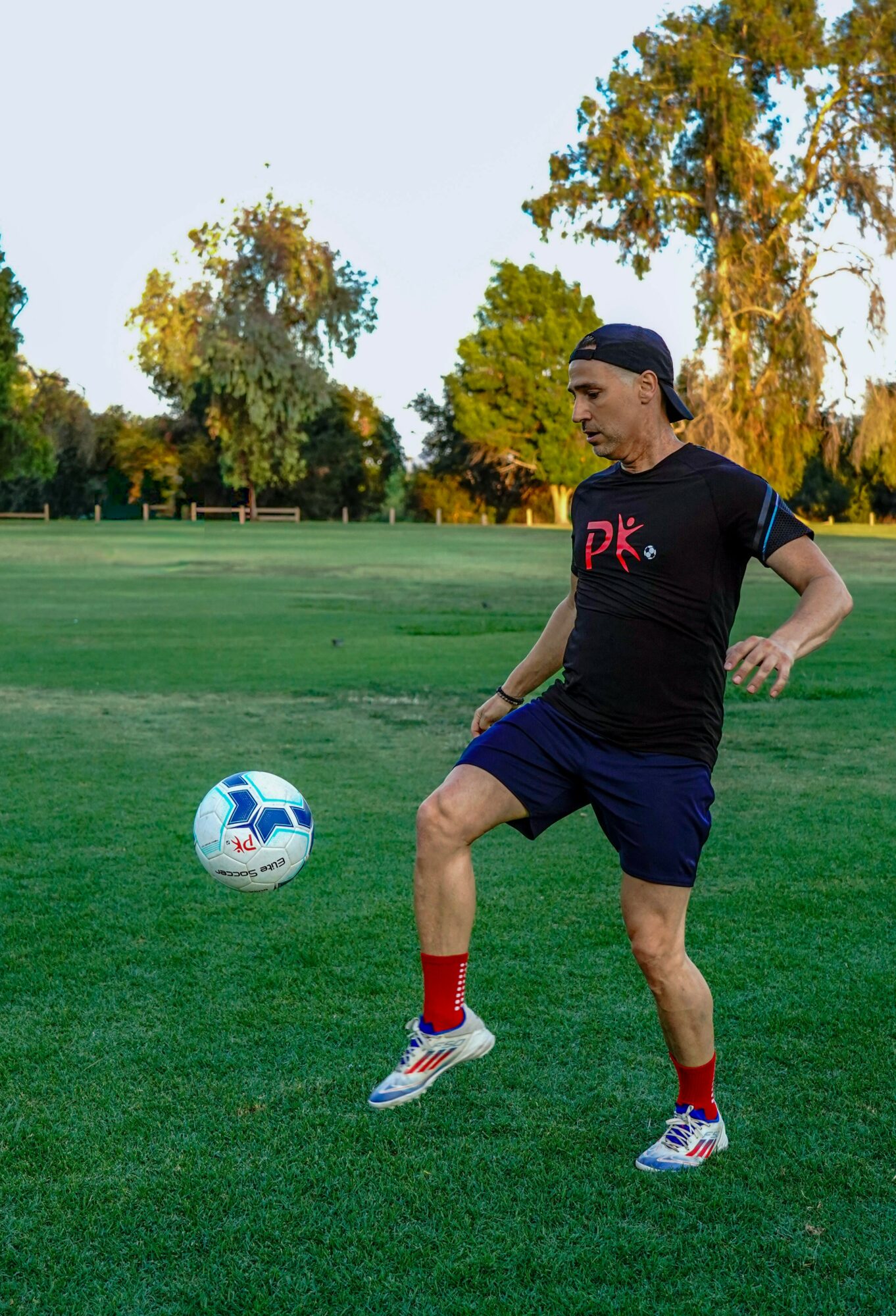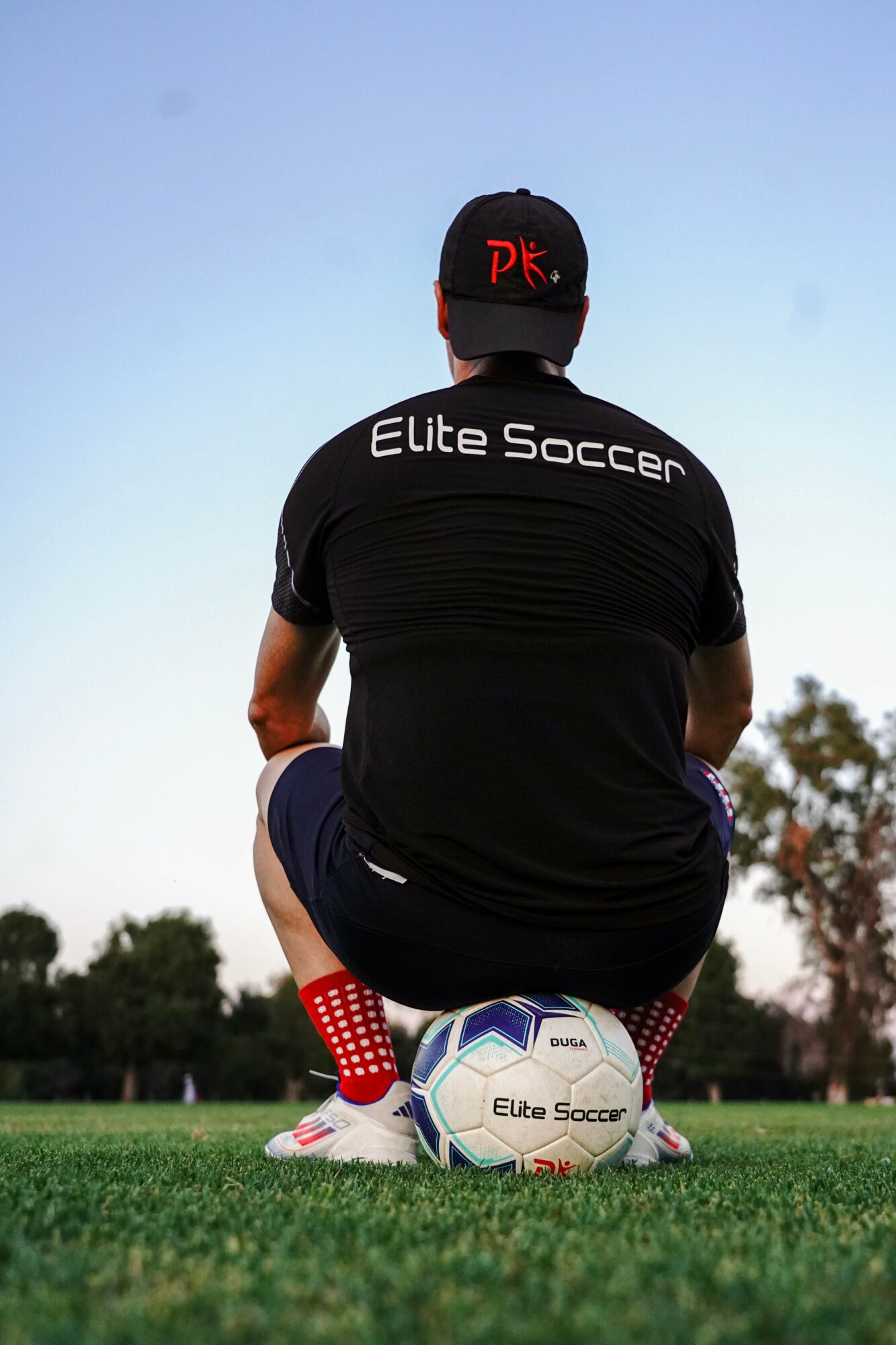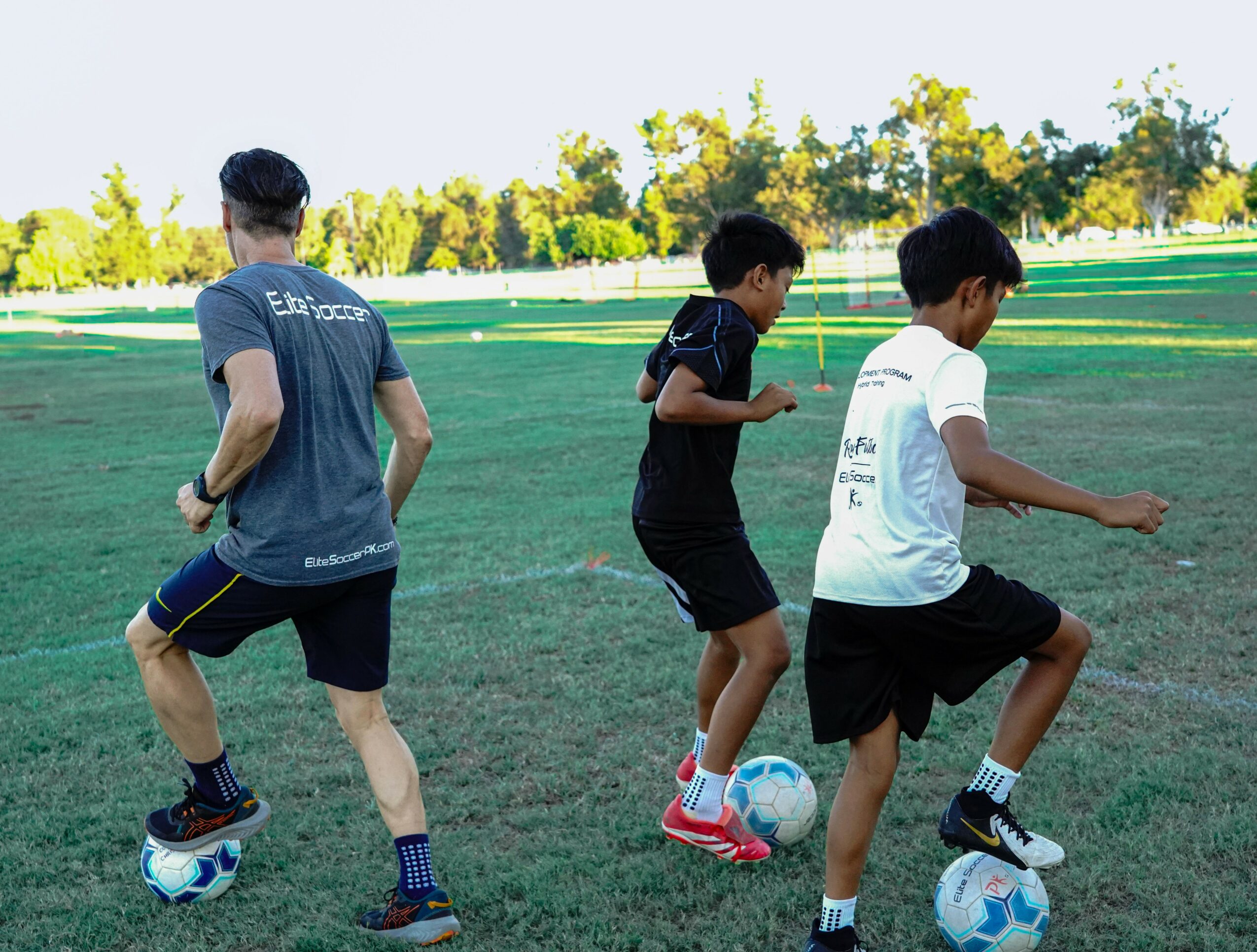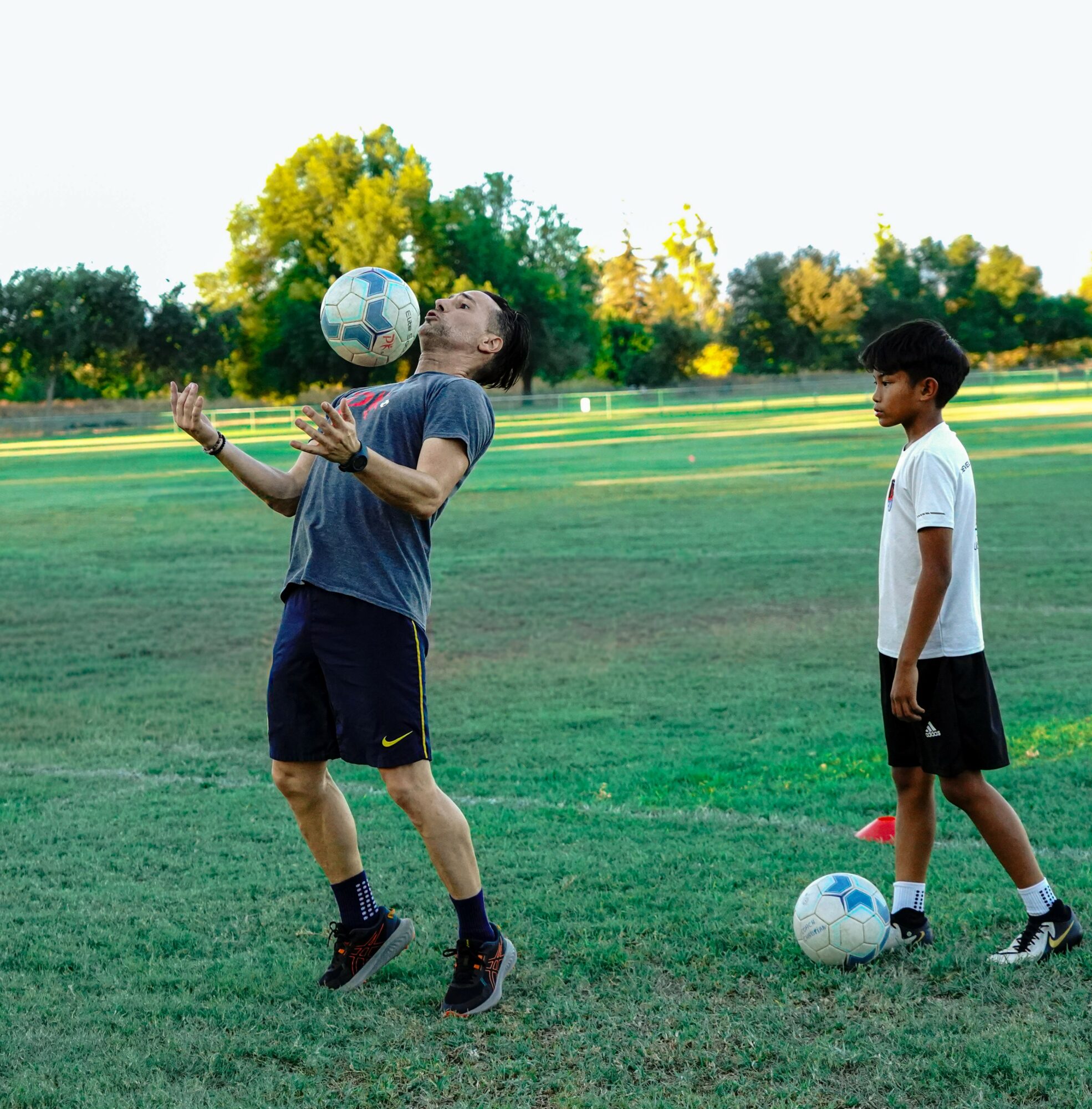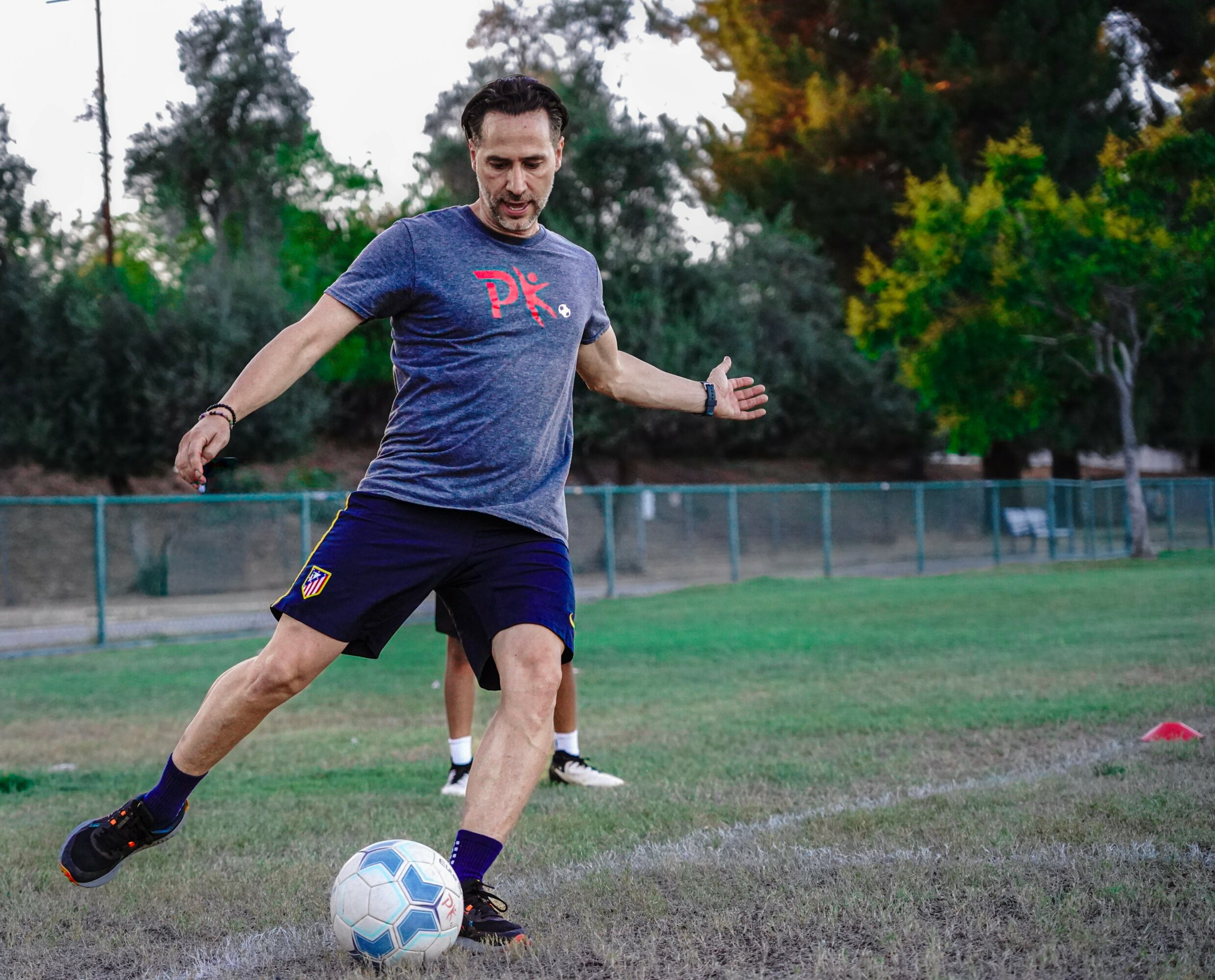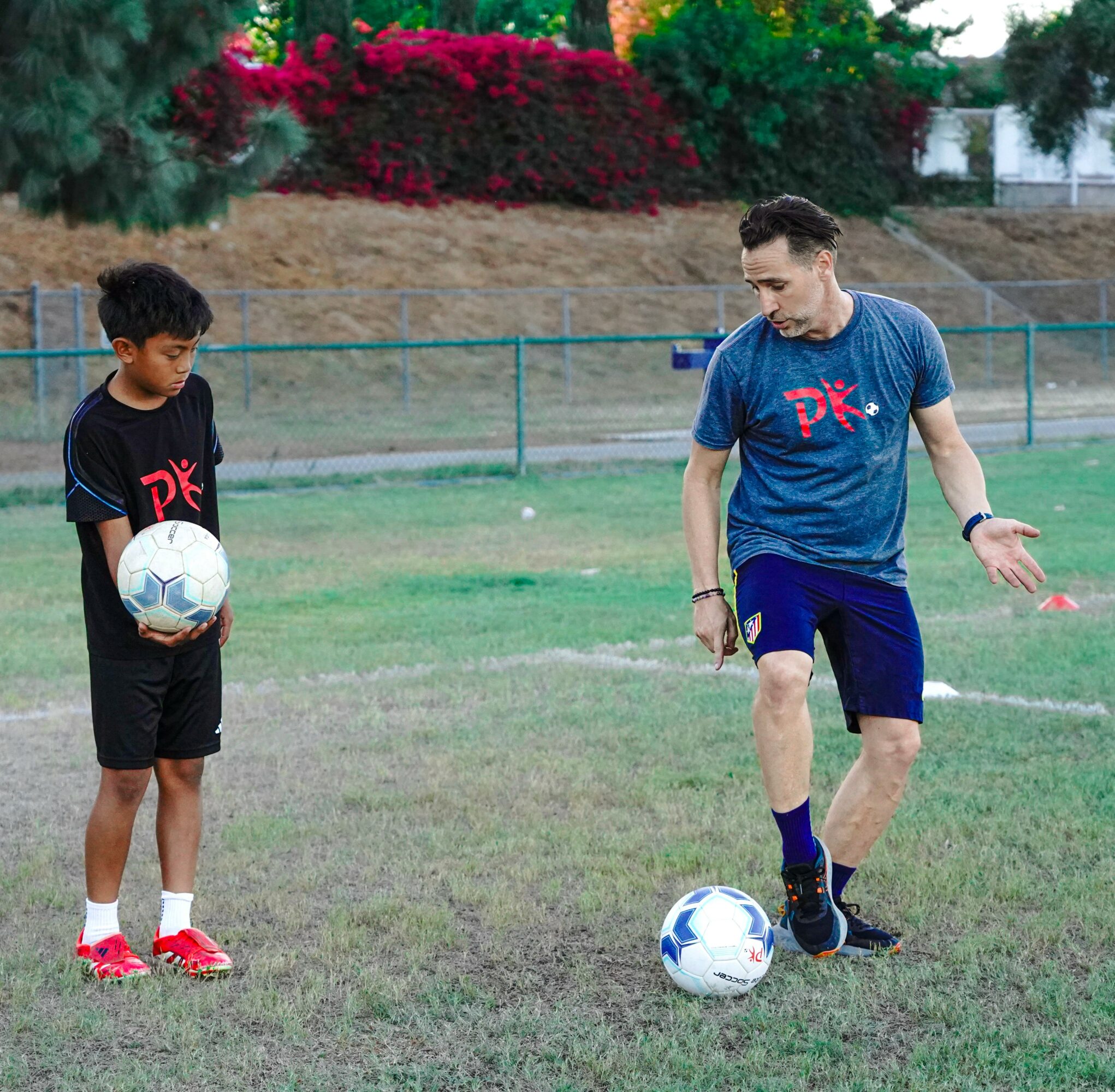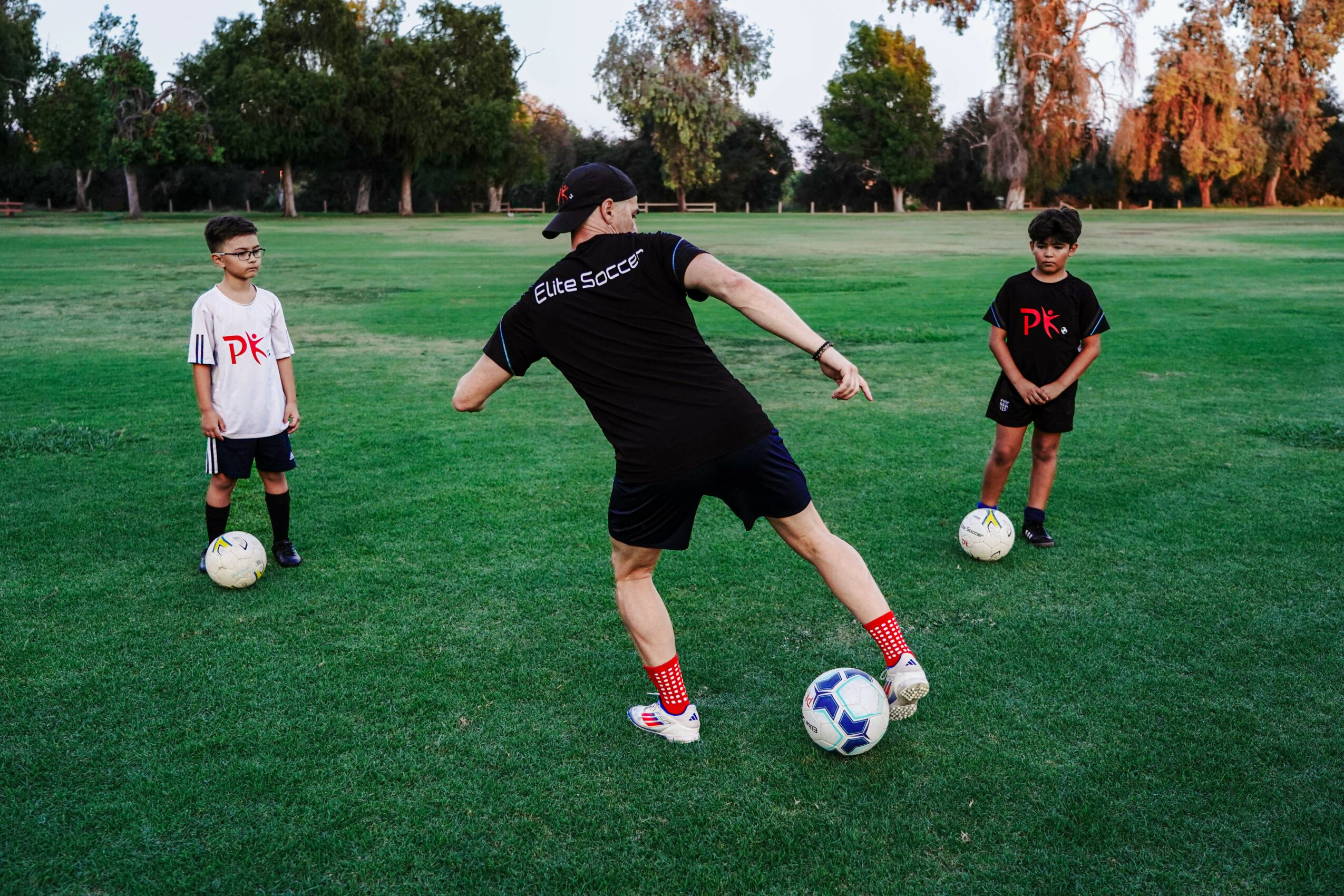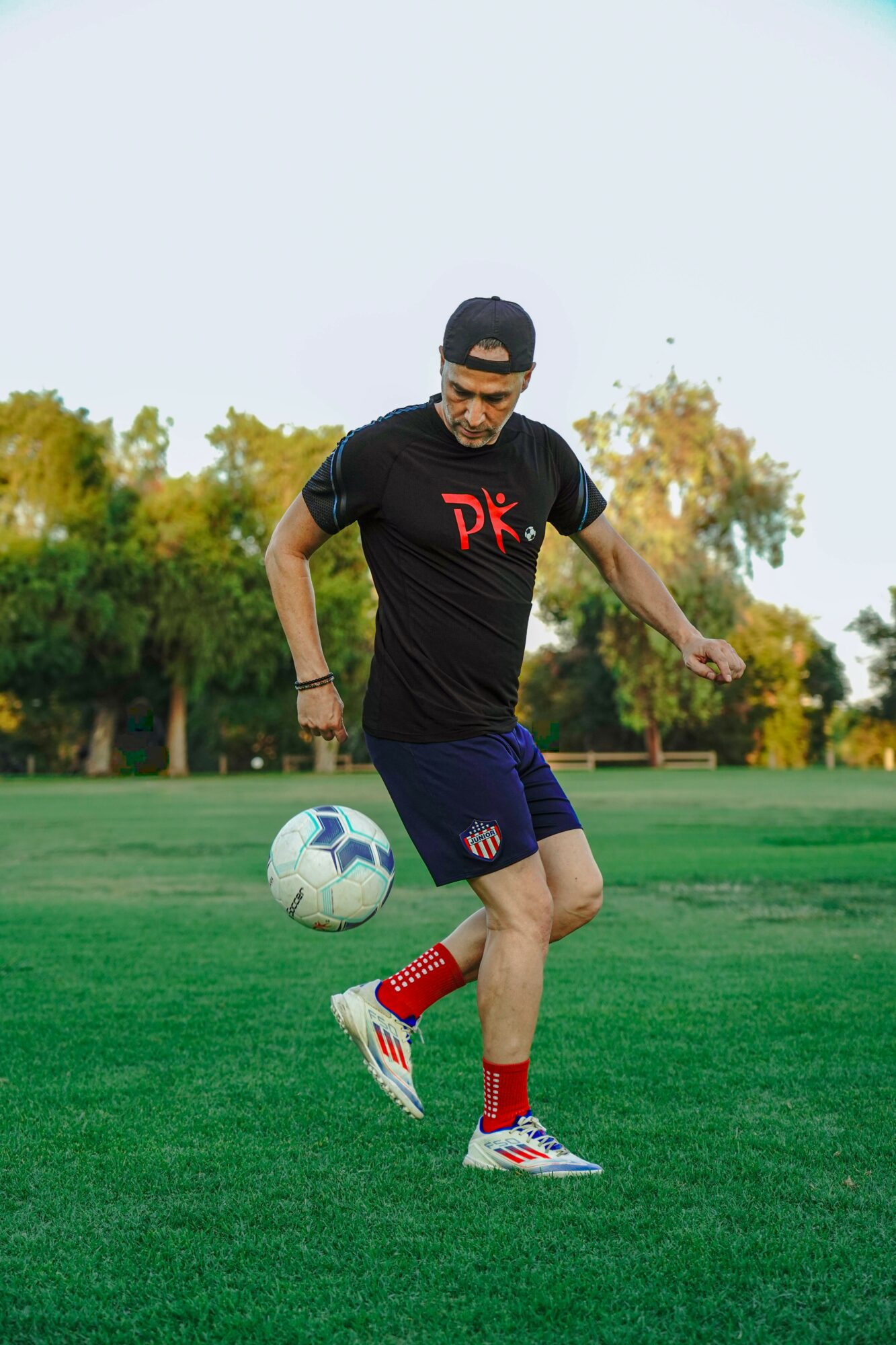

We recently had the chance to connect with Christian Marin Diaz and have shared our conversation below.
Hi Christian, thank you so much for taking time out of your busy day to share your story, experiences and insights with our readers. Let’s jump right in with an interesting one: What are you most proud of building — that nobody sees?
People back in Spain sometimes think I was “lucky.” They see me now with my academy in California, traveling, living well. But they don’t see the sacrifice.
I grew up in Fuengirola, starting at Atlético Fuengirola in Pre-Benjamín and Benjamín, then moved to UD Fuengirola for Alevín and Infantil, where I was coached by Chico. At 14, I joined the Málaga CF Academy (Cadete division), then played for San Félix (Juvenil Liga Nacional), and later Puerto Malagueño (Juvenil División de Honor). From ages 14 to 18, I lived a routine that most people can’t imagine: after school I’d take a 45-minute train from my hometown to Málaga, then walk to catch a bus, then walk again to get to the training facility in El Viso Polígono near the University of Málaga. After two hours of training, I did the whole journey in reverse. Two hours to get there, two hours to come back, plus two hours of training—six hours of my day, every day, all for soccer. While my friends were hanging out and enjoying their teenage years, I was sacrificing mine to chase my dream. And I did it with pleasure, because playing for Málaga CF was all I wanted.
Then, at 19, my injury got worse, and my level dropped because of it. I went back home and played for the first team of UD Fuengirola, but eventually the injury became so serious that I was forced out for nearly a year.
In 2004, I moved to the U.S. chasing opportunity. I played semi-pro with L.A. Blues and Orange County Blue Star until 2007, and then earned a full scholarship to California Baptist University. But that scholarship didn’t come easy. I was rejected twice academically because of my poor English. I had to attend community college, earn an ESL certificate, and complete general classes before finally being accepted. It was a huge mental and emotional battle, but I pushed through.
Life in the U.S. wasn’t glamorous. I was lonely, homesick, in a city where it’s hard to find true friends. At one point, I even spent almost a month sleeping in my car. I had nights with just $20 in my account, eating instant soups and 55-cent McDonald’s cheeseburgers to survive. I even got bitten by a black widow spider while sleeping in that car, and without health insurance, hospitals here refused to treat me. A friend had to drive me to Tijuana to get penicillin so the poison wouldn’t spread further.
Through all of this, my parents were back home in Spain with open arms, ready to support me. But I chose to stay in the U.S., even when I had almost nothing, because I knew what I wanted—to study, to coach, and to build a new life.
Now, what started in 2007 with just one private client as Elite Soccer Personal Training has become Elite Soccer PK, a training academy with 25+ weekly private 1-on-1 clients and 50+ kids in clinics across Encino and the San Fernando Valley. Over the years, I’ve coached more than 1,000 players.
That’s what I’m proud of: that I built all this from nothing. My life was not easy. I was not “lucky.” I worked, I sacrificed, I suffered, and I overcame. Let’s make that clear.
Can you briefly introduce yourself and share what makes you or your brand unique?
My name is Christian Marin Diaz, born in 1982 in Fuengirola, Málaga, Spain. I played from Pre-Benjamín all the way to Juvenil in Spain, including three years with Málaga CF Academy, before moving to the U.S. in 2004. From 2007 to 2010, I played college soccer at California Baptist University on a full scholarship.
Today I’m the founder of Elite Soccer PK, where we specialize in 1-on-1 soccer training and clinics in Encino and the San Fernando Valley. Our mission is to give every kid—whether advanced, recreational, or special education—the opportunity to reach their potential through soccer.
Amazing, so let’s take a moment to go back in time. What was your earliest memory of feeling powerful?
I remember when I was around 12, still playing in Fuengirola. For years, I had been the fast defender sitting on the bench, crying when I didn’t play. Then finally my coach gave me a chance to play forward. I’ll never forget that first official game as a striker—I scored three goals. Sure, I also missed about ten chances, but those three goals gave me the belief that I could be more than just a sub.
That season, I kept scoring and ended with around 30 goals. The following year, I was called up to represent the Málaga State Team in the Andalucía championship, scored in the semifinal and final, and we won it all. Eventually, that path led me to sign with Málaga CF Academy.
My powerful moment wasn’t about being the best player—it was about proving to myself that with work and belief, I could transform from the kid on the bench to the kid leading the attack. That gave me a confidence that has stayed with me forever.
If you could say one kind thing to your younger self, what would it be?
I’d tell my younger self to take care of your parents and be patient with them. When you’re young, you think you know everything, but the truth is your parents have already lived through the things you’re just starting to face. At that age, I was stubborn, always chasing soccer, always focused on myself, and sometimes I didn’t stop to see everything my parents were doing for me behind the scenes.
I’d tell that younger version of me to slow down, listen more, and give them the same patience they always gave me. They sacrificed so much so I could play, travel, and have opportunities, and I didn’t always see it. I’d remind myself that time with them is limited—nothing is guaranteed—so enjoy every moment, laugh with them, and let them know you appreciate them. Looking back, you realize they were your biggest fans and supporters all along, and I wish I had spent even more time with them during those years.
Next, maybe we can discuss some of your foundational philosophies and views? What’s a belief you used to hold tightly but now think was naive or wrong?
When I was younger, I used to think that success depended fully on coaches. I believed that if you had the right coach, your future was secure. And yes, good coaches are incredibly important—they guide you, they teach you discipline, they give you opportunities. But over time, I realized that even the best coach in the world can’t play for you, you are the one who need to put the work.
They can show you the tools, but you’re the one who has to pick them up and use them every single day. You’re the one who has to do the extra runs, wake up early, keep your focus when things aren’t going well. I’ve seen players with all the talent and all the support who didn’t make it because they didn’t put in the work. And I’ve seen players with less talent but who worked harder than anyone else, and they passed everyone. That’s when I understood—success comes from you, not from anyone else.
Before we go, we’d love to hear your thoughts on some longer-run, legacy type questions. What do you understand deeply that most people don’t?
One thing I understand deeply is that consistency and sacrifice matter more than pure talent. Talent is great—it gives you a head start—but without discipline, it doesn’t take you far. When I moved to the U.S. and played at California Baptist University, my life was a non-stop grind. I was taking 15 units of classes full time, playing soccer, working on campus 10 hours a week, getting my coaching license, training youth teams like Celtic and Corona United, running private sessions, receiving tutoring math at night, and on weekends I was still playing semi-pro games just to stay sharp and pay my bills.
My schedule was brutal—I’d wake up at 7am and come home at 11pm almost every day for 4 years. There were times I thought, “I can’t keep this up,” but I pushed through because I had a bigger vision. That routine built my discipline. It taught me that success isn’t about one big moment, it’s about what you do every single day when nobody is watching.
Most people think success is about talent, or luck, or being in the right place at the right time. What I know is that in addition to that, it’s about showing up, consistently, and sacrificing comfort to get where you want to go. That’s why when I look at kids today, I tell them: work hard, be honest, stay humble, and keep showing up. That’s how you separate yourself from the rest.
Contact Info:
- Website: https://www.elitesoccerpk.com/
- Instagram: https://www.instagram.com/elitesoccerpk/
- Facebook: https://www.facebook.com/EliteSoccerPK/
- Yelp: https://www.yelp.com/biz/elite-soccer-pk-encino-5
- Youtube: https://www.youtube.com/channel/UCQ8HmXAlXCaecRnmRgVE68g
